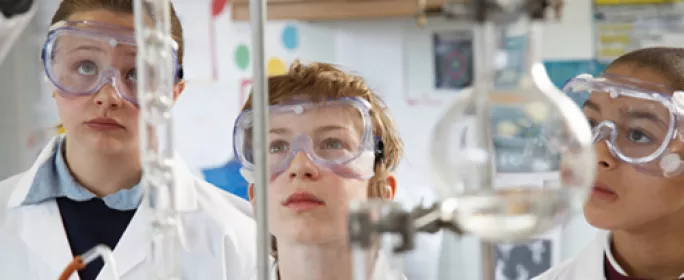Leading scientists attack end of link between A-level grades and practical skills
A decision to stop practical science work from counting towards overall A grades has triggered a wave of opposition from leading scientists, universities and teachers.
Ofqual, the exams regulator, announced today that it was going ahead with the plan - which will see a separate pass/fail grade for practical skills - despite agreement from less than a fifth of those responding to its consultation.
Opponents to the plan have included the government’s chief science adviser Sir Mark Walport, who has said that it risks downgrading practical skills.
But Ofqual argues it will also put in place measures that will actually improve the quality of practical science work in schools.
The new A-level exams will contain questions designed to test pupils’ knowledge and understanding of practical work. Schools will also be subject to visits from exam boards to check that laboratory experiments take place.
Ofqual chief regulator, Glenys Stacey, said that practical skills were “absolutely integral to science”.
“Those who don’t do enough practical work at the moment should have a much greater incentive than they have now to teach science experimentation,” she said. “Our arrangements are designed so that if schools do not do sufficient and sufficient varied experiments… then their results will suffer.”
She added that Ofqual was “very attracted” to using the same approach for GCSE sciences.
But critics are not convinced that the scheme - designed partly to counter concerns about coursework cheating and over-generous teacher marking - will work.
Score, representing a group of leading scientific societies, argues that the scheme will reduce the amount of practical work, leaving England’s pupils behind their international peers, with the disadvantaged particularly badly affected.
Professor Julia Buckingham, chair of Score, said today: “We fully appreciate that reform is needed but the current solution is rushed and does not address operational issues. We believe we can develop workable new approaches but Ofqual has decided to go ahead with an inadequate solution.”
“Schools may reduce the opportunities for students to do practical work if the separate mark for practical work is viewed as less important than the A-level grade used on Ucas forms, for example.
“With poorer performing schools often the least inclined to undertake practical work, this reform is likely to have a larger effect on already disadvantaged students.”
But Ms Stacey said: “Anyone who has been in any number of school science classrooms and science labs of late would agree with me that the current experience for both students and teachers is simply stultifying.
“It is difficult to avoid that if you’re requiring a set experiment to be done across the nation.”
Ofqual says it has worked with higher education to identify 12 practical activities for each of the three separate sciences that pupils will be required to carry out during their two year A-level courses.
But of the six universities that responded to the regulator’s consultation, only one agreed with the plan.
Ms Stacey said that schools would have to keep a log of all practical activities completed and that exam boards would carry out “live checks” on schools to moderate the work.
But Steve Evans, head of science development for the OCR exam board said: “We don’t think it is feasible that you could visit all centres [schools].”
He said the details had not yet been “set in stone” by Ofqual and OCR was proposing targeted visits, with schools having to submit logbooks.
But OCR’s head of GCSE and A-level reform, Paul Dodd, said that an exam board visit to each school, every year, was a proposal being considered by Ofqual.
The Campaign for Science and Engineering said that the A-level changes would “mean that young people will be able leave school with the highest grades in science without being able to do science at all”.
Campaign director, Sarah Main, added that she was “shocked and dismayed” by the decision to proceed with them “in the face of objections from across the science community”.
“These reforms risk robbing students of the opportunity to find out if they enjoy doing science,” she said. “They could strike a serious blow to the Government’s ambition to put science and engineering at the heart of the UK’s future economy.”
Ms Stacey admitted it had been “very difficult” to achieve a consensus on a solution to the “problems” with practical science.
Keep reading for just £1 per month
You've reached your limit of free articles this month. Subscribe for £1 per month for three months and get:
- Unlimited access to all Tes magazine content
- Exclusive subscriber-only stories
- Award-winning email newsletters




